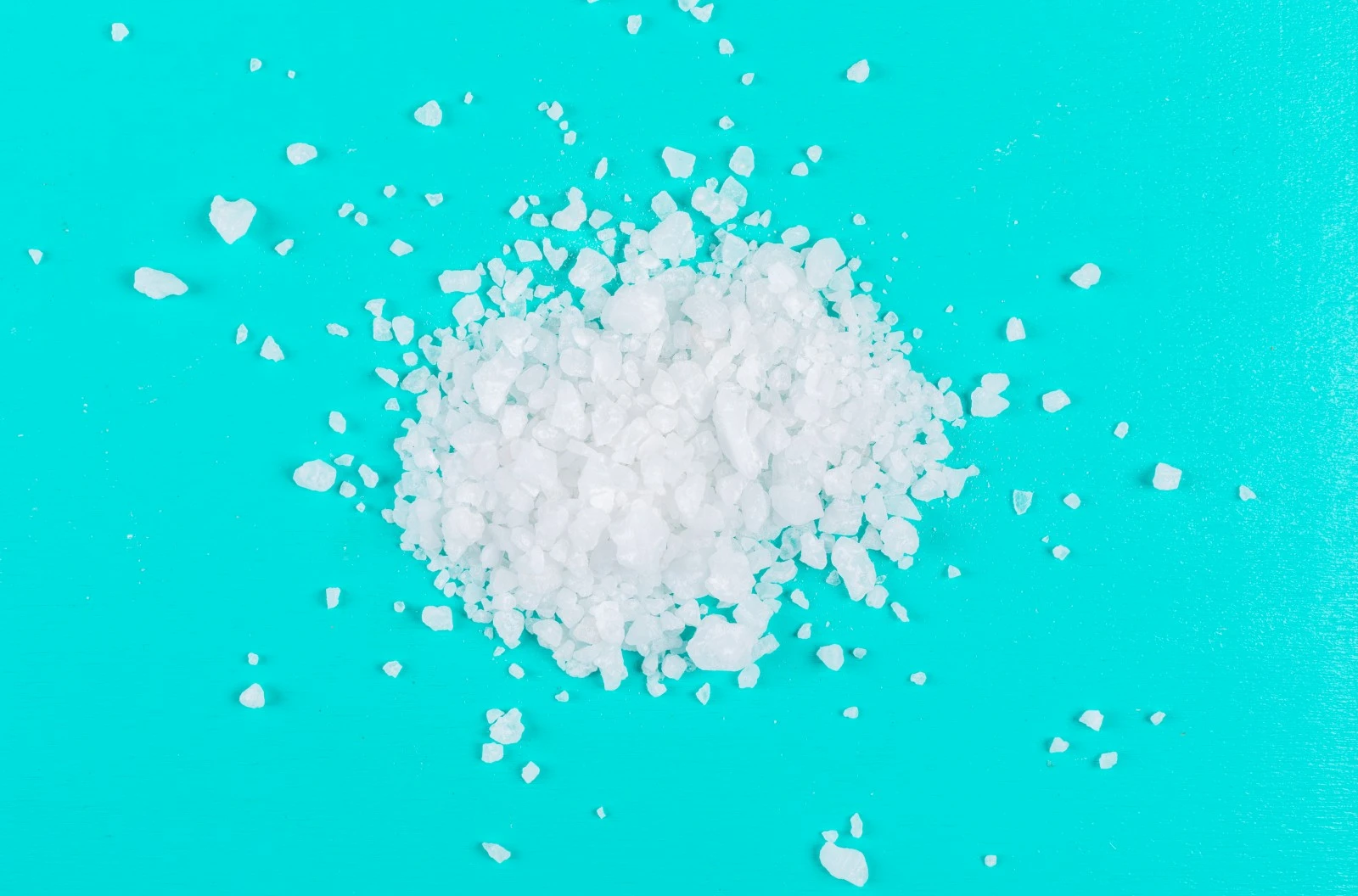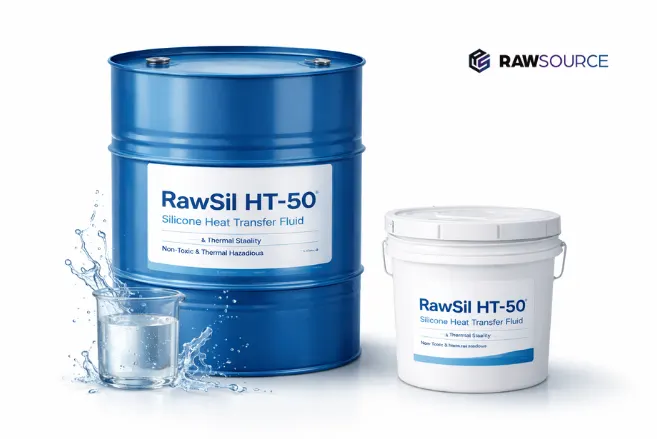TABLE OF CONTENTS
TABLE OF CONTENTS
What is Mono Sodium Gluconate?
Mono Sodium Gluconate is the sodium salt of gluconic acid, known for its chelating, sequestrant, and stabilizing properties. This white crystalline powder (C6H11NaO7) is derived from glucose fermentation and is highly soluble in water. Its non-toxic and biodegradable nature makes it valuable across various industries. In food, it enhances flavor and shelf life. In pharmaceuticals, it stabilizes medications and adjusts pH levels. In construction, it improves concrete workability and prevents steel corrosion. In personal care products, it stabilizes and enhances formulations, ensuring product efficacy and safety.
Chemical Properties of Mono Sodium Gluconate
Property
Description
Chemical Formula
C6H11NaO7
Structure
Sodium salt of gluconic acid; consists of a six-carbon chain with multiple hydroxyl groups.
Physical Appearance
White, crystalline powder; odorless with a slightly sweet taste.
Solubility
Highly soluble in water, enhancing its usability in aqueous solutions.
Stability
Stable under normal storage conditions; effective across a wide range of pH levels and temperatures.
Chemical Formula
C6H11NaO7
Structure
Sodium salt of gluconic acid; consists of a six-carbon chain with multiple hydroxyl groups.
Physical Appearance
White, crystalline powder; odorless with a slightly sweet taste.
Solubility
Highly soluble in water, enhancing its usability in aqueous solutions.
Stability
Stable under normal storage conditions; effective across a wide range of pH levels and temperatures.
Applications of Mono Sodium Gluconate
Food Industry
Functions as an Additive: Mono Sodium Gluconate enhances the flavor and stability of food products. It acts as a flavor enhancer and stabilizer, maintaining the taste and texture over time.
Chelating Properties: Its ability to bind metal ions prevents discoloration and spoilage, crucial for maintaining food quality and extending shelf life.
Pharmaceuticals
Role as a Stabilizer: It stabilizes pharmaceutical formulations by maintaining the integrity of active ingredients, ensuring the efficacy and safety of medications over their shelf life.
pH Adjuster: Used to maintain desired pH levels in medicinal solutions, ensuring optimal drug effectiveness.
Benefits as a Concrete Admixture: Acts as a retarder, improving concrete workability and increasing strength by delaying setting time, beneficial in hot weather conditions.
Corrosion Inhibition: Protects steel bars within concrete from corrosion, enhancing the durability and longevity of structures.
Use as a Chelating Agent: Enhances the stability and performance of personal care products by preventing the degradation of active ingredients, ensuring effectiveness and safety.
Benefits of Mono Sodium Gluconate
Non-Toxic Nature
Mono Sodium Gluconate is recognized for its non-toxic properties, making it safe for use in food, pharmaceuticals, and personal care products. This characteristic ensures that it does not pose any health risks to consumers, which is crucial for maintaining product safety standards.
Biodegradability
Another significant benefit of Mono Sodium Gluconate is its biodegradability. It breaks down naturally in the environment, reducing its ecological footprint. This property is particularly important for industries aiming to develop sustainable and eco-friendly products.
Versatility Across Applications
Mono Sodium Gluconate’s versatility is evident in its wide range of applications across different industries. It functions as an additive and chelating agent in food, a stabilizer and pH adjuster in pharmaceuticals, a concrete admixture and corrosion inhibitor in construction, and a chelating agent in personal care products. This adaptability makes it a valuable ingredient for various formulations and processes.
Safety and Handling of Mono Sodium Gluconate
Storage Recommendations
Cool and Dry Place: Store Mono Sodium Gluconate in a cool, dry area away from direct sunlight to maintain its quality.
Sealed Containers: Use well-sealed containers to prevent contamination and moisture ingress.
Clean Environment: Ensure storage areas are clean and free from potential chemical contaminants.
Proper Handling Practices
Personal Protective Equipment (PPE): Wear gloves, goggles, and lab coats to avoid direct contact with skin and eyes.
Ventilation: Handle in a well-ventilated area to prevent inhaling any dust.
Immediate Rinsing: In case of accidental contact, rinse the affected area with plenty of water immediately.
Safety Protocols: Always follow standard safety guidelines and protocols to ensure safe usage and handling.
Environmental Impact of Mono Sodium Gluconate
Biodegradability Details
Mono Sodium Gluconate is highly biodegradable, meaning it breaks down naturally in the environment without leaving harmful residues. This property makes it an eco-friendly choice for various industrial applications, as it minimizes its environmental footprint. The degradation process ensures that it does not accumulate in soil or water, reducing the risk of long-term environmental damage.
Sustainable Sourcing Practices
Sustainable sourcing of Mono Sodium Gluconate involves obtaining raw materials from renewable resources and employing environmentally responsible production methods. Manufacturers are increasingly focusing on sustainable practices such as using plant-based sources for gluconic acid and implementing energy-efficient processes. These practices help in reducing the overall environmental impact and support the global move towards greener and more sustainable industrial practices.
Market and Sourcing of Mono Sodium Gluconate
Global Availability
Mono Sodium Gluconate is widely available globally, sourced from numerous chemical suppliers and manufacturers. Its widespread use in various industries, including food, pharmaceuticals, and construction, ensures a steady demand and supply chain. Major producers are located in regions like North America, Europe, and Asia, making it accessible to international markets.
Quality Control Measures
To ensure the high quality of Mono Sodium Gluconate, stringent quality control measures are implemented during production. These include
Raw Material Testing: Ensuring the purity and quality of starting materials.
Process Monitoring: Regular monitoring of production processes to maintain consistency.
Product Testing: Final product testing for purity, concentration, and absence of contaminants.
Certification: Compliance with industry standards and certifications, such as ISO, to guarantee quality and safety.
These practices ensure that the product meets the required standards for various applications.
Conclusion
Mono Sodium Gluconate is a versatile and eco-friendly compound with extensive applications in the food, pharmaceutical, construction, and personal care industries. Its non-toxic nature, biodegradability, and ability to act as a chelating agent make it invaluable across these sectors. With global availability and rigorous quality control measures, it meets high standards of safety and efficacy. Understanding its properties, benefits, and environmental impact can help in making informed decisions for its application in various products and formulations.
FAQs for Mono Sodium Gluconate
What is Mono Sodium Gluconate?
Mono Sodium Gluconate is the sodium salt of gluconic acid, commonly used as a chelating agent, stabilizer, and additive in various industries.
Is Mono Sodium Gluconate safe for consumption?
Yes, it is non-toxic and safe for use in food products. It is widely used to enhance flavor and improve shelf life.
How is Mono Sodium Gluconate used in pharmaceuticals?
It acts as a stabilizer to maintain the integrity of active ingredients and as a pH adjuster in medicinal formulations.
What are the benefits of using Mono Sodium Gluconate in construction?
It improves the workability of concrete, acts as a retarder, and prevents corrosion of steel bars in concrete structures.
Is Mono Sodium Gluconate environmentally friendly?
Yes, it is biodegradable and breaks down naturally in the environment, reducing its ecological impact.
What industries use Mono Sodium Gluconate?
It is used in the food, pharmaceutical, construction, and personal care industries for its versatile properties.
Contact Us
Questions or looking for a quote?



